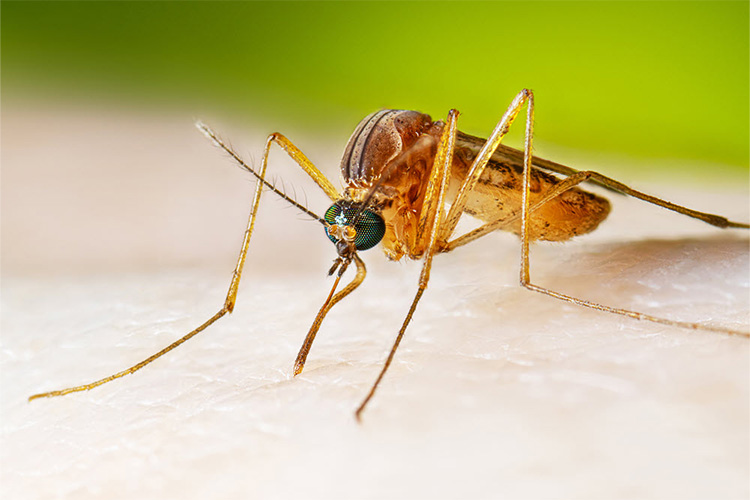
A mosquito bite can lead to the infection of WNV, and cases are increasing in several states. photo courtesy of U.S. Centers For Disease Control and Prevention
Cases are rocketing in multiple parts of the United States.
In the United States, cases of the West Nile Virus (WNV) are increasing rapidly. WNV is a mosquito-borne virus that was first discovered in 1937. However, health organizations are finding that it’s spreading among regions such as North America, Asia, and Europe at a faster rate than ever. Parts of the United States such as California and Arizona have seen the most outbreaks of WNV within the past three years. The Arizona Department of Health Services reported in 2021 that at least 1,400 cases of WNV were found in Maricopa County, Arizona. The virus is now being observed in Colorado, with at least 20 deaths in the last year.
The distinctive trait of WNV is the fact that it is typically asymptomatic in 70-80 percent of individuals. For the remaining 20-30 percent, symptoms are usually mild. Only around one percent of those infected can experience severe illness that leads to death.
Business owner Meg Williams was recently infected with the virus and is now recovering. “For me, the virus started with nauseating headaches and dehydration. I visited the doctor several times before they tested me for WNV six weeks later,” she said. Williams explained that doctors were convinced that she was infected with mononucleosis, which is also known as “mono.” Her symptoms included dizziness, body aches, swelling, nausea, and migraines, and her symptoms just kept getting worse.
After the test results came back positive for WNV, Williams was immediately hospitalized. “I stayed in the hospital for nearly a week, where they boosted my hydration with the use of an IV, and managed my migraines with pain medication,” she explained. WNV has no vaccination because the outcomes of each case are inconsistent, making the virus extremely life threatening for the one percent who are more vulnerable to it.
Today, Williams is still recovering, but feels much stronger than before. The most common symptom that she is dealing with now is occasional tremors that cause her to shake uncontrollably. The main component that differentiates this virus from others is the idea that being infected can cause swelling on the brain and spine. According to researchers from the New York State Department of Health, “In humans, WNV may cause a mild illness but may also cause encephalitis (inflammation of the brain) or spinal meningitis (inflammation of the lining of the brain and spinal cord).” As a result of this swelling, neurological deficits like dizziness and nonfunctional behavior are quite common in WNV patients.
The virus is spread to humans and animals through a mosquito bite that typically comes from the Culex species. Uninfected mosquitoes can bite a bird with WNV and become a vector for the virus. Outbreaks are found today more than ever due to climate change. An increase in heat can accelerate mosquito development and biting rates, so it makes sense that places with warmer and drier climates like Colorado, California, and Arizona have the most cases in the United States today. Researchers in North America hope to learn more about WNV and notice convenient patterns in order to prevent cases from rising.